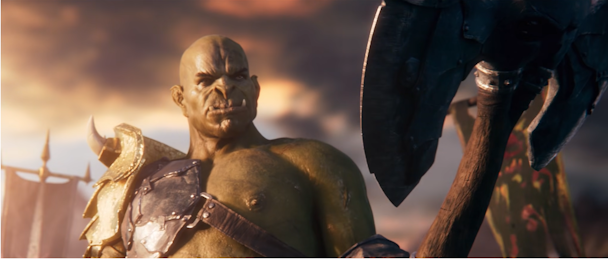Has Coke’s Real Magic ad ‘set the brand back years with the gaming community?’
With great fanfare, Coca-Cola unveiled its brand new global platform two weeks ago. ‘Real Magic’, and its debut ad, were meant to attract Gen Z and gamers to the world’s leading soft drink. But while general market research shows a favorable response to the Coke ad, some within the gaming community are calling the spot ‘inauthentic’, ‘tone deaf’ or worse. Here’s what experts are saying and what marketers can learn from Coke’s polarizing play for gamers.

Coca-Cola' latest ad has been criticized for a lack of authenticity
Coca-Cola’s epic “One Coke away from each other” ad is receiving plenty of attention, but not in the way the cola giant was likely hoping for. To kick off its global ‘Real Magic’ campaign, Coke made a big bet on luring gamers and Gen Z to the brand. The debut spot features top eSports stars, a partnership with Twitch and a massive prize giveaway. However, the execution of the ad has been the subject of a flurry of negative comments on social media while leaving a number of eSports analysts scratching their heads. At the same time, it appears to have been met with positive reviews from the general population, according to data from the social monitoring company Talkwalker.
The polarizing ad shows an eSports contestant participating in a fictional video game competition. Once the player stops and takes a swig of Coke, their avatar within the game is overcome by the desire not to fight anymore. The entire world is then connected in a moment of peace.
While the feel-good ad seems harmless enough, it has incited the ire of some vocal gamers because of its perceived lack of authenticity. The biggest criticism is the fact that Coke is characterizing gameplay as being conflict and seemingly implying that gamers are living disconnected lives, says Tim Crow, sports and eSports advisor and manager of the world’s leading eSports psychologist Mia Stellberg.
“Gaming is not a divided world. They are a big tribe that doesn’t need Coke’s help to connect with each other because they already are. Games are about fun and the competition brings people together… Coke [came off as] tone deaf about gaming and what it is. They’ve put themselves back years with the gaming community with this globally," he says.
Wayne Deakin, executive creative director at the ad agency Huge agrees. “Coke is trying to solve a problem that doesn’t exist… It’s as bad as the Kendall Jenner ad with Pepsi.”
A Coca-Cola spokesperson offered the following statement to The Drum in response to the criticism: “At the end of September, Coca-Cola launched a new brand philosophy that refreshes the brand’s trademark promise – to unite and uplift people all over the world in every day – with renewed relevance for the world in which we live today. The ‘Real Magic’ philosophy will house many different campaigns and experiences in the years to come. The first execution, titled ‘One Coke away from each other,’ is a metaphor that speaks to the belief that what unites us is greater than what sets us apart.”
This familiar sentiment previously seen in ads like “Have a Coke and a smile,” “Happiness factory” and the Sundblom Santa ads failed to translate in this execution, says Subnation co-founder Doug Scott. “Coke tried to shoehorn their own cultural context into the gaming world. They missed what is most important which is authenticity… They misappropriated the true idea of the metaverse and what it means for the digital and the physical worlds to come together.”
The Coca-Cola spokesperson’s statement adds: “We collaborated with gamers, including Team Liquid, in the development of the campaign, which also features an interactive code hunt that launched Oct. 11. Through a partnership with Twitch, gaming creators will unlock additional codes with their viewers during live streams on Twitch channels over the coming weeks. Coca-Cola has been an active supporter of eSports for many years, with partnerships across the gaming industry. We are listening closely and will continue to learn from and engage with this community.” The agency behind the work, BETC, declined to comment.
Gamers grumble while the general market audiences applaud
A scan of gamers’ comments on social media reveals questions about whether anyone producing the ad “has the slightest clue about gaming,” proclamations like “nothing screams more out of touch than this” and new allegiances to Pepsi.
While Internet venom is nothing new, the ferocity among the gaming crowd is hard to ignore. “Coke really should have done their research into gaming,” says Deakin. “They aren’t speaking gaming language.” The trouble areas according to the social media chatter and the experts interviewed:
- The plot of the ad is perceived as being similar to the blockbuster movie Free Guy.
- Setting the action in an imitation of World of Warcraft versus a real game.
- The fact that there is a mini-fridge present during an eSports event.
- The idea that a gamer would stop playing, mid-competition, to drink a Coke.
- The live chats on the streams feeling inauthentic.
Another key frustration is assuming eSports viewers would be happy that a game ends mid-battle. “I’m puzzled by the mistakes that Coke never would have made with traditional sports,” says Crow. “Imagine Coke made an ad where football players took a drink of Coke at halftime and didn’t come out to finish the Super Bowl or that happened with an NBA playoff or rugby world cup final? There are fans across the world who are saying they are offended by this.”
Yet, despite these criticisms, the ad is scoring well with the general population, according to social monitoring company Talkwalker. The video has been viewed more than 330,000 times on YouTube. It has received 63.7% positive sentiment and just 3.1% negative sentiment at a global level, per Talkwalker. The sentiment in the US and the UK is split into 55% positive and 10% negative.
Conversations have revolved mostly around Coca-Cola and DJ and YouTuber, Alan Walker, who was part of the campaign. “Having Alan Walker in the campaign has made the video echo across young generations of gamers and fans of the DJ,” says Elena Melnikova, chief marketer at Talkwalker. “Positive conversations in the UK and the US have focused on the execution of the video, the creativity behind it and the creation of the virtual world. Consumers also responded positively to Coca-Cola’s new philosophy and the brand refresh, which includes tweaks on the brand’s logo.”
Huge’s Deakin sees the mass-market appeal. “The logo lockup at the end was the best part. I loved the CGI. It was well shot. The music was good… My mom will love it. People will love it. But my son, who is a gamer, thought it was condescending. He said, ‘what’s the point of playing a game if nobody wins?’”
How Coke can make some real magic with gamers
While some experts have derided aspects of the ad, they have also been forthcoming with possible solves for connecting with the gaming community. Here is their recommendations:
Offering content that helps gamers. “Gamers want tutorials. How do you get a skin here or an avatar there? They want shortcuts. Give them the tools to be a better gamer,” says Deakin.
Crowdsourcing ads from the community. This ad “provided little fuel for accelerating or elevating the gaming community,” says Subnation’s Scott. “They could have sent the brief to the entire community and would have been gotten some amazing stories about gaming from gamers.”
Tackling causes that are important to gamers. “Coke has the opportunity to make real magic happen. Take on gender bias and sexism in gaming which is a real game-changer versus a badging exercise,” says Deakin. “Become the No. 1 eSport sponsor and help develop young gaming talent. Get rid of cyberbullying in gaming. Make your brand do something that’s actually good.”
Tackling causes that are important to Coke. “They are very issues-oriented. Their water initiatives have been very well received. The plastic issue, upcycling for t-shirts and other products, [has been a positive as well]. Leaning into purpose in terms of the authenticity of the lifecycle of their product, that’s their path,” says Scott.
Supporting indie game developers. “Rather than borrow from eSports competitions and the larger-than-life fandom, give indie game developers the magic of Coke,” says Scott. He suggests an augmented reality component on Coke bottles that enable gamers to try out new games.
Learning from Red Bull and, yes, Pepsi. “Beware of stereotyping Gen Z, gamers and Gen Z gamers. It will bite you back,” says Crow. “Red Bull has done an outstanding job showing a real understanding of the audience. Dew did it better 10 years ago. Not as much recently, but you’re still seeing comments like ‘I’m going to drink Pepsi from now on.’"
When asked about the current chatter about the Real Magic ad, a PepsiCo spokesperson says, “we’ll defer to the gaming community on this one.”

